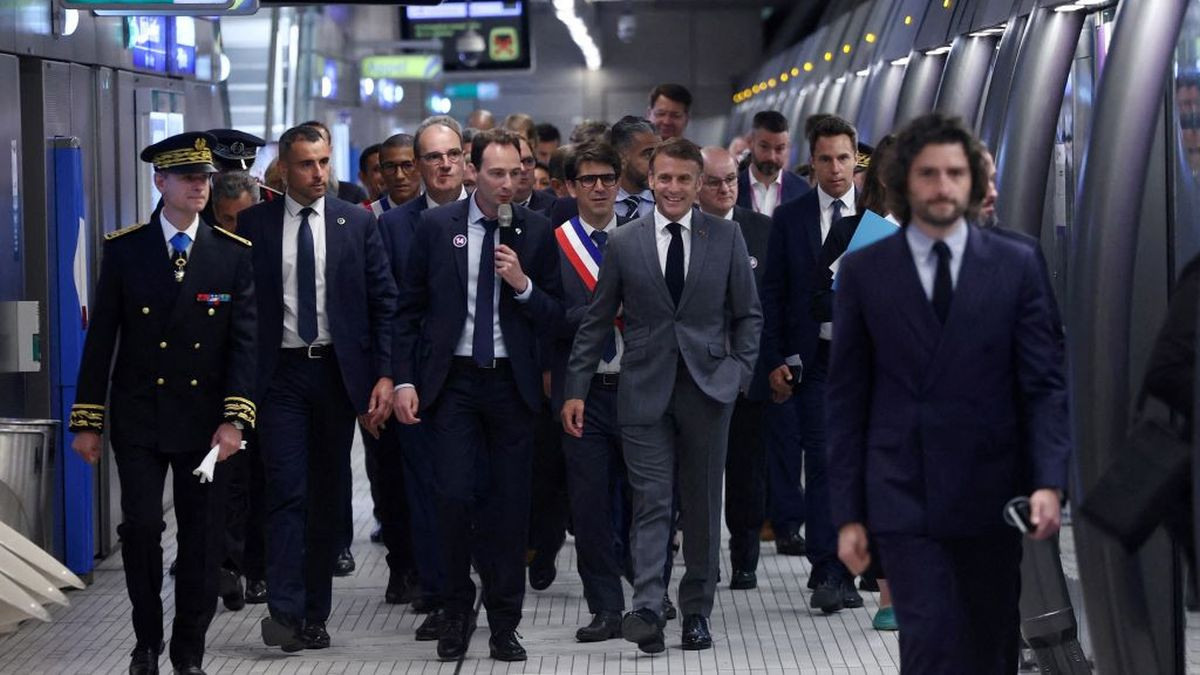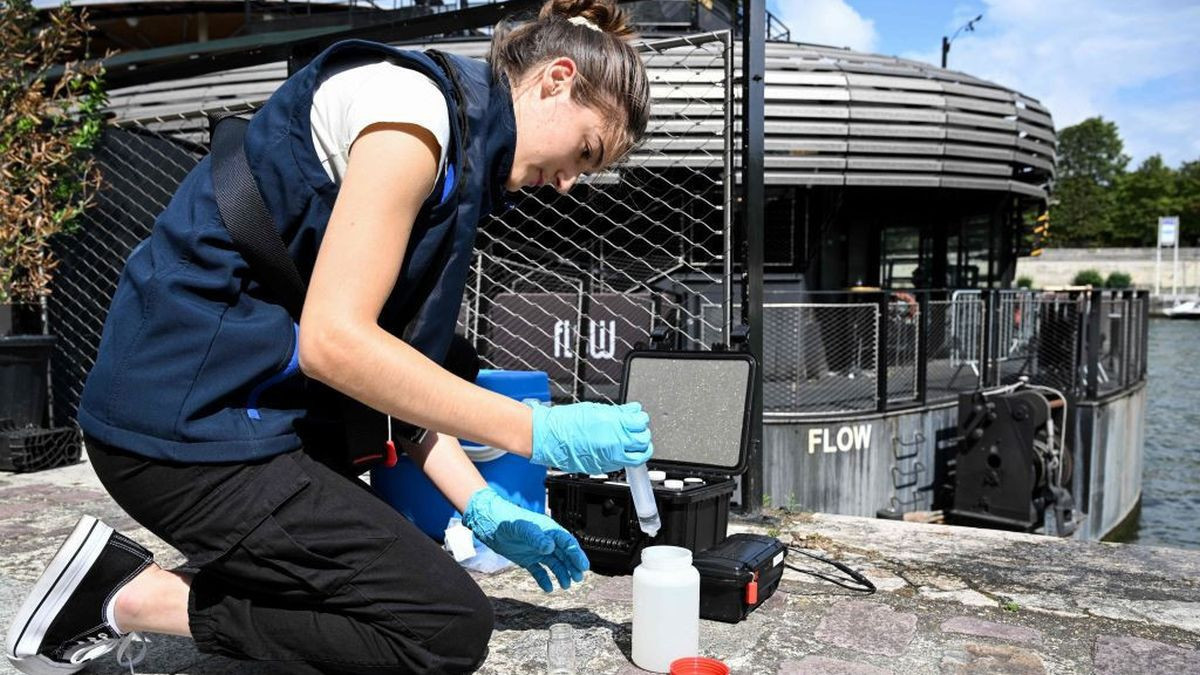Paris 2024: Promising much, delivering little
especiales

Since Paris launched its bid for the 2024 Olympics and secured it in 2017, the project has undergone numerous changes by its organisers and public administrations. From ticket prices to environmental concerns, saying is one thing, doing is quite another.
The Paris 2024 organisers have modified their initial plan several times. For some, it's about adapting to a poorly understood reality. For others, it's simply doing what many do: promising, knowing that promises are often blown away by the wind.
One of the most significant unfulfilled promises since 2017 has been affordable ticket prices. Although the organisers say the cost is similar to London 2012, it is not the affordable price that was promised. Being similar to London 2012 prices does not make them affordable. It just makes them comparable.
In fact, ticket prices are more than double those of Rio 2016 (the last Games with spectators). Tickets for the Games in the Brazilian capital were available from 12 euros, while in Paris the minimum price is 24 euros. One final athletics session costs (at least) 125 euros, which is far from affordable, considering that Olympic fans often want to enjoy several events at the same time.
Another aspect that casts doubt on the accessibility of the event is the unprecedented Opening Ceremony on the Seine, which has undergone significant changes, particularly in terms of the number of spectators who will be able to watch it live. It has gone from being a major event showcasing French grandeur with around 600,000 people (and half a million free tickets) to 220,000, with the same number of paid tickets. That means 400,000 fewer free tickets (about 20% of what was promised).
That in itself isn't a problem - it's a private event and doesn't have to offer free tickets. What's wrong is promising and raising hopes for things that won't be delivered. Worse still, the free tickets will not be distributed by lottery, as originally planned, but directly by the public authorities and the organising committee - to their friends, of course.

President Macron fulfils his promise to extend metro line 14, although it will cost twice as much instead of being free for ticket holders. GETTY IMAGES
In the very country that prides itself on being the cradle of modern democracy and the republic that followed the French Revolution and the ideas of Montesquieu, Voltaire and Rousseau at the end of the 18th century, the opposite is happening: nepotism.
The slogan "The Games finance the Games", which the French government has been using for months, will not be fulfilled either. Various levels of the French public administration have already invested more than €2.4 billion in infrastructure, urban works and even the anti-doping laboratory.
The final cost of hosting the Olympics for the third time in France is unknown, but it is known that recent increases have been made (security, bonuses for officials, other sectors taking advantage of the opportunity to secure salary demands). "There will be no Olympic tax", President Macron reiterated, "but everything will come from public funds, which are the product of direct and indirect taxes paid by taxpayers, as well as any debt incurred".
Pierre Moscovici, President of the Court of Auditors, recently estimated that the final public investment will be between 3 and 5 billion euros. The final answer will come after the event, but it's dangerous to have such a margin of discretion. The difference between spending €3 billion or €5 billion (if that is the budget ceiling) is over 65%, a considerable amount in basic arithmetic for any normal human being.
Although the bid dossier announced that "all ticket holders will be able to travel for free on all public transport in the Paris region on the day of their competition", as has been the case for many major events (Russia 2018 and Qatar 2022, not to mention others), this will ultimately not be the case.
Once again, it's a long way from talk to action. In December 2022, the decision to seek additional revenue was reversed following a budget review.
The Paris Region Transport Authority announced special prices for the Games: 4 euros for a single metro ticket! An increase of almost double the current price, justified by the 15% increase in public transport traffic during the event, as if the increase in metro users could justify such a price hike.
A different case is swimming. One of the few sports facilities built specifically for the Games is the Olympic Aquatic Centre (OAC) in Saint Denis,next to the Stade de France.
This brand-new complex will not host the swimming events because budget constraints reduced the capacity to 5,000 spectators, a third of what the international federation (World Aquatics) requires for an international swimming competition. The result? A stadium has been built that will not be used for its intended purpose. Who pays for it? The taxpayer, of course.
The OAC will host water polo, artistic swimming and diving, while the swimming stars will have to go to the other side of the capital, to the La Défense arena, where temporary pools have been set up to host the competitions of one of the main sports of the Games.
As far as cleaning up the Seine is concerned, virtually all pollution studies point to the dangers of swimming in the river that runs through the French capital, where the 10km open water marathon and triathlon were originally planned.
Another unfulfilled promise, despite improvements and the spending of 1.4 billion euros, although the mayor herself said she would swim there during the week of 15 July. It remains to be seen whether she will keep her promise and, above all, whether the river will finally return to its centuries-old state.
The other promise the organisers still boast about is the environmental impact of the Games. They promised it would be "positive", with noble ideas of offsetting CO2 emissions to a neutral level, but here too they have done a U-turn.

An employee collects a sample of water from the Seine to analyse its composition ahead of the Paris 2024 near the Pont Alexandre III in Paris. GETTY IMAGES
Instead, the organisation is aiming to halve CO2 emissions, calculated as follows: one third from transport, another third from infrastructure construction and the remaining third from activities directly related to the Games (accommodation, security, catering, etc.).
Time will tell if this last promise, which replaces the previous unfulfilled one, will be kept.













Add new comment